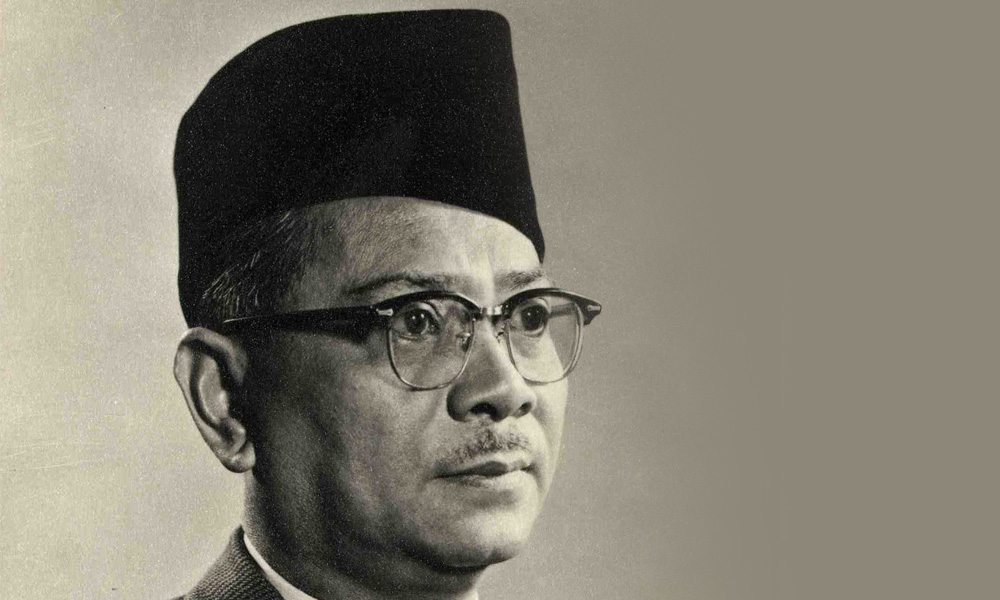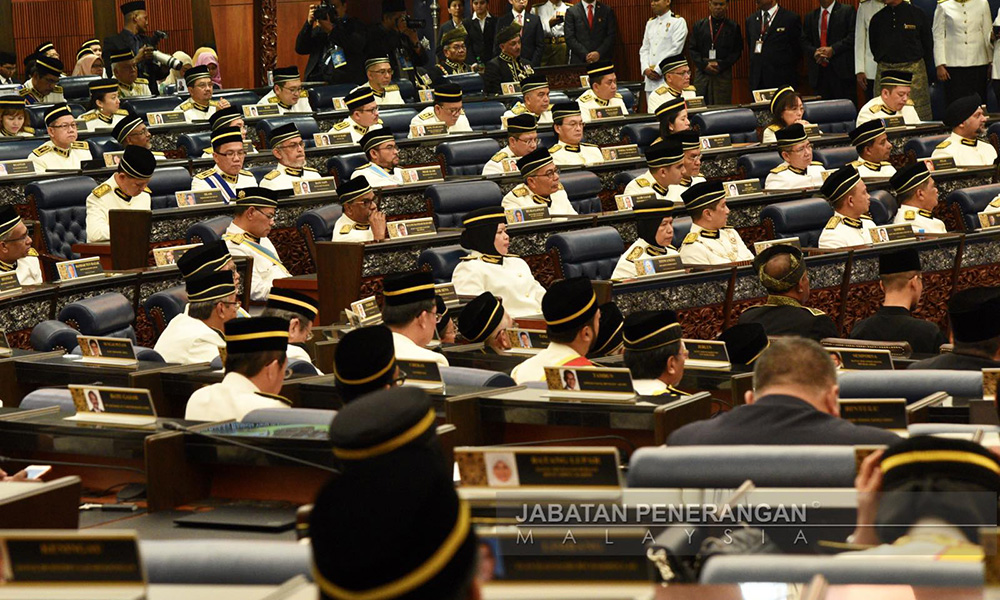Maal Hijrah and Merdeka have come and gone. Soon more parades and more money will be spent on the Malaysia Day celebrations. It is understandable because that is how we measure success. Perhaps it is time for some reflection that requires no spending.
The euphoria for many people on May 9, 2018, did not last long. It became pretty clear soon after that we were not going to get leaders who had the high moral courage to effect fundamental transformations in this country.
The country needed a major fix. The institutions required a complete overhaul. The parameters in economic, legal and social structures established years ago needed to be revisited to revitalise this stagnating country. We were (are still) a “dysfunctional” democracy, where traditional institutions had broken down.
Accountability of ministers and public officials were scarcely available. At times we were mufti-led, and the politicians were fearful of religious functionaries. We had outdated economic policies and years of authoritarian rule where prime ministers were all-powerful. Our laws prohibit basic fundamental freedom.
So the people, during the last election, expected a new brave leadership that will change, albeit in stages, all the things that had gone wrong. That was the legitimate expectations of the people.
Unfortunately, the type of leaders we needed for this role of rebuilding are nowhere to be found. We need moral leaders. By ethical leadership, we mean upright leaders who, by their integrity and character, are trusted by the majority of the population. A moral leader has the patience for criticism. He is mindful of the many pressing issues that are ailing us. Such a moral leader respects diversity. He recognises human rights and international conventions. He shuns strong-arm tactics, for the people no longer take orders without question.
A moral leader secures the confidence and trust of many by his courage and persuasion, and he can get the people torn apart to come together; to willingly do great things on their own. Other countries have had their share of great ethical leaders, Lincoln, Gandhi and Bhumiphol are some of them. We have leaders of the usual kind, authoritative and full of themselves.
We need another leader like Tunku Abdul Rahman
Our first prime minister Tunku Abdul Rahman (photo) was different. He is an example of a moral leader. He had the courage of his convictions of a multiracial democracy for the new country. Tunku was able to obtain the support of the various races to work together for the first time in history.

The reason he was successful is they trusted him. A moral leader like Tunku does not engage in double talk, practise double standards and does not rely on authority alone to govern. The country trusted him and did not doubt his words. He does not play politics as a power game to prolong his rule. His character is endearing, his integrity unquestionable, his gentle ways draw support from many divided parts of the country. At this juncture of our history, we need another Tunku, if we can find one.
Whatever institutional reforms we have done so far are half measures. Look at this new Parliament that unashamedly declares itself to be “independent”. Sure, there are many more committees now than before. That is easy to do. There is something seriously wrong if this is all it takes to make Parliament independent. A genuinely modern Parliament that aspires to be world-class will need to be financially independent of Putrajaya. It is not difficult to legislate for Parliament to receive an annual allocation from the yearly Budget which enables it to be independent so it can renovate its toilets.
The election of the speaker is just as important as selecting the chief justice, if we genuinely believe in the separation of powers. It is human to be indebted and loyal to the person who puts you on the pedestal.
We need a speaker who is also an MP, selected by fellow MPs, as in other democracies. This will ensure there will be mutual respect, more impartial rulings, less shouting matches, and fewer walkouts. Surely it is not difficult to nominate a sitting MP as a speaker and let his colleagues choose him. A speaker, who is also an MP, has more credibility and respect of the others in Parliament. The voting will be across party line and the winning candidate will be more balanced in his rulings and decisions. This suggestion is, of course, anathema to those who want control.
The same goes for the Election Commission. Whilst, fortunately, we have a good team, it remains an organiser of elections and nothing more. It has no powers that world-class Election Commissions usually have. Why can’t we emulate the independent Election Commissions of other countries and give more powers to the EC? This is to ensure democracy works and during the election campaign, have powers to make rules binding on all parties. EC needs the powers to disqualify candidates who unleash personal attacks on their opponents, and those who manufacture false information to gain votes.
I could go on and on about the appointments of other institutions, for they all have the same trademark, half measures. Commissions are there to make the running of government more productive, to allow for objectivity in the selection and getting the best candidates for the top job. This was what we promised the people of this country. It costs nothing to honour that promise – but this government will not change. Pakatan Harapan is not ready to let go of control, it is that simple. Our cherished toothless institutions continue to rubber-stamp decisions already made somewhere else. All this happens because the country has no moral leadership.
Citizens of all colours and creed must be treated fairly
We then promised that all citizens of whatever ethnicity and religion will be treated fairly, that they feel a sense of belonging to this country. We promised an open government and what constitutes fairness can be discussed openly without rancour and hate. Repeal of the Sedition Act was promised to allow citizens to express their deep-seated dissatisfactions. The ensuing discussions could be about discriminations, economic hardships or unfair treatment. We have prejudices and perceived injustices running deep in the people’s veins.

They need to vent them out without having to go to jail or be accused of being disloyal to king and country. Without the Sedition Act, more people can talk freely about any subject, more views can circulate, and we will be better for it. That is the significance of its repeal. The fear that this will cause riots is unjustified. Malaysians, by and large, are responsible citizens. Their leaders may goad them to do stupid things, but they will not follow them blindly. Also, our police are better than we think if we allow them to act professionally.
In a freer environment, people can talk about many things. They can canvass how meritocracy will fly us out of the doldrum or that positive discrimination is beneficial. Some may campaign for apartheid-style discrimination if that whets their appetite. People can propose why vernacular schools are outdated and are not suitable for the country.
Proponents of a new curriculum in schools can propose new subjects and reduce the hours on religious education without being charged with insulting Islam. We promised that the government will undertake this paradigm shift so that policies on “sensitive subjects” that are pulling us down can be reviewed.
We promised a modern multiracial democracy where the leaders decide on issues in a transparent manner, where they have to be accountable for their actions. We want the police force or the MACC that is impartial and seen by the public as being neutral.
In other words, we expect the IGP and MACC not to need clearance before they charge anyone higher up the ladder for criminal actions. Today, few believe in the absolute impartiality and independence of these two institutions. The way they were appointed raised questions about their ability to be independent. The fact that none of the defecting Umno leaders who received money from former prime minister Najib Abdul Razak was slapped with “notices of forfeiture” tells a lot about our MACC. The fact that the government could not be sure of the person who looks like our minister in the sex video, and yet a million others can, tells us a lot about the integrity of the government.
Is there a register for insults against non-Muslim faiths?
Religion is excellent for the soul but can create havoc if the administration of the country is based on religious edicts. We have allowed the exploitation of religion to go unchecked. People expected this government to reverse it.
Islam has a special place in this country, and that is why we have substantial financial allocations from all taxpayers to fund Islamic institutions. Non-Muslims do not resent it. It will be a grave error, however, if this government, as the past government did, continues to allow politicians and religious officials to use religion to influence policies and administration. Unless we refine and slow down Islamisation as a policy, the state will not only stagnate but regress.
At one stage, some were advocating abolishing Jakim. Maybe it is not necessary, but Minister Mujahid Yusof Rawa (photo) should try to be a minister of Islam/ Jakim and other faiths too. When he said Jakim recorded complaints of 10,000 insults against Islam, did he and Jakim also have a register that records insults against Hindus and Christians? Little things like a separate register to record and take action on insults against others by Muslim NGOs will go a long way to show that our leaders are fair. Fairness is just a common-sense principle, do to others what we expect others to do to us. Or refrain from doing things to others which we want them not do to us. If Harapan has lost the capacity to be fair, it has lost the war.
The Umno–PAS alliance will make it difficult to stem the rise of extremist religious and racial demands. Their battle cry is always that Islam is under threat. They said the Malays are being dominated by DAP (they won’t use the word Chinese as they want the MCA votes). These are matters that will further frighten our feeble leaders from making the right decisions.
Now is the time when Harapan leaders need to be bold and counter them with facts and figures. After all, we have a champion debater in the cabinet and all the media facilities to win friends and influence people. We need knowledge and moral courage to respond to the onslaughts.
The choice is stark: If we use all our resources to change the mindset of the extremists and make them realise that there are no enemies amongst us. We are one people with different expectations. Harapan might be able to hold on to power and save the country by bringing sense to the voters. On the other hand, if they continue to be feeble and lacking in moral fibre, they will lose the fight.
Anyway, the best way to continue to secure the support of Harapan’s base is to keep the promises in the manifesto. If we abandon those key reforms, the base will disappear, and their support will be gone. Appeasing the demands of the extremists will be a waste of time. They will never be satisfied until their ideology takes over.
Be race and religion-blind for 30 days
Everyone knows this country will progress, perhaps to a higher level, if we adopt the values and practices of those developed societies. It means we need to discard senseless discrimination and free the administration from the influence and interference of religious clerics, like our neighbour Indonesia has done. We also desperately need a modern education system and scientific minds to guide our children.

We have a chance if our leaders, for just 30 days, be blind to race and religion, and of “the enemies from within.” In these 30 days, try not to refer to race and religion in all their speeches and in making policies. Try to be Malaysian first, and have the confidence that Malaysians are sensible people. Their priority is to feed the family and school their children, they do not want riots.
Take them for what they are and don’t doubt their loyalty. Be positive. Give them hope for a better future. Many things could be accomplished.
The biggest threat to the country is the growing culture of hate. It is not just hate-speech we have to deal with, but actions and behaviour that encourage segregation. Dealing with this phenomena becomes more difficult when hate is camouflaged as religious commands. Only a principled and moral leadership will have a chance against such onslaught.
I heard some Harapan leaders say that they need time to do the things expected of them. They cite the usual refrain that Rome was not built in one day. Leaders either have moral virtues and courage to correct injustices, or they do not. A few more years will make no difference.
We know Rome was not built in one day, and the people do not expect a change in one day. Moral leadership, however, needs to exist and exhibited from day one. Otherwise, we have committed fraud on the people.
ZAID IBRAHIM
– M’kini




No comments:
Post a Comment
Note: Only a member of this blog may post a comment.